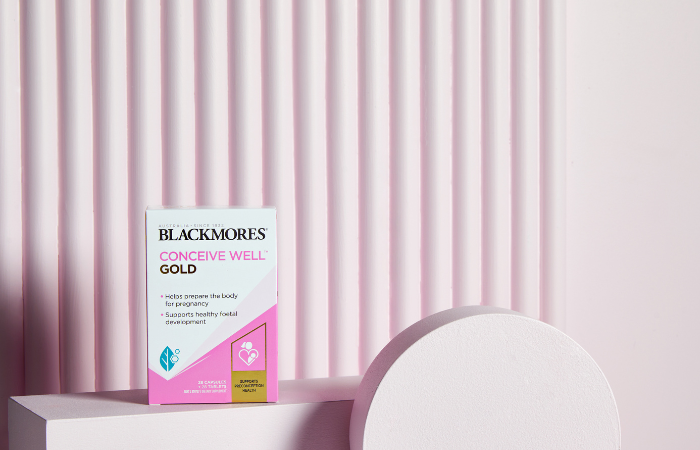Confused about which nutrients you need when you’re planning a pregnancy? And how soon before you conceive you should ideally start supplementing some of them? Don’t panic. Here are the nutrients you really need – and why (and when!). As well as some other need-to-know info.
Essential Nutrients for Conception
Antioxidants
The main ones to know about are selenium and CoQ10. These help to reduce free radicals from being formed in the body, which supports the health of your reproductive system.
Folic acid and iodine
Every woman who’s trying to get pregnant is advised to supplement these two nutrients, with folic acid being recommended at least four weeks prior to conception and then for the first 12 weeks of pregnancy, too. Both are key for baby’s healthy development in the early stages of pregnancy.
Zinc
This mineral plays an important role in reproductive health, as well as preparing the body for pregnancy and supporting baby’s healthy development.
Vitamins A, C, E and D
It might sound like a long list, but they’re genuinely all important. The ‘famous four’ do everything from supporting a healthy menstrual cycle to helping prepare the body for pregnancy and supporting baby’s early development.
B vitamins
There are eight of these in total, and while some play a specific role in pre-conception and pregnancy health – including vitamins B12 and B6– more generally, B vitamins are needed for reproductive system health. Not only does the body have a limited capacity to store most of the B-group vitamins, which makes a regular intake vital, some dietary patterns, including vegetarian and vegan diets, can bump up the risk of vitamin B12 deficiency.
Omega-3 fatty acids
There are three different types of these, and research has linked them all to supporting and maintaining women’s reproductive health. Worryingly, statistics show that only one in 10 Australian women of childbearing age gets enough of one of the most important omega-3 fatty acids from her diet.
Iron
Fresh research shows that nearly two in every 10 Australian women are iron deficient, an essential mineral that, as well as maintaining general health and wellbeing, helps prepare the body for pregnancy, so that baby’s health is not only supported, mum’s health is, too.
Calcium
Two in three Australian women don’t get enough calcium from their diet, a mineral that supports your health as mum-to-be, a healthy pregnancy and the healthy development of baby.
Copper
Optimal copper levels play a role in everything from preparing the body for pregnancy to supporting baby’s healthy development in the womb.
Choline
Recently, research has started to reveal just how important ensuring an adequate intake of choline is during pregnancy, due to the vital role it plays in supporting baby’s healthy development. Yet a 2019 study shows that the diets of more than 90 per cent of Australians are lacking in choline-rich foods.
If that list of nutrients sounds like a lot to stay on top of, your best bet might be taking a conception supplement that covers your bases, bearing in mind that some nutrients – like folic acid and iodine – are officially recommended as necessary supplements.

Blackmores Conceive Well™ Gold prepares the body for healthy conception. Some of the key nutrients include:
- Folic acid - Contains a daily dose of 500 micrograms of folic acid to help prevent neural tube defects such as spina bifida and/or anencephaly
- Iodine – supports healthy foetal brain development
- Iron – supports healthy foetal development. 38-40% of Australian women have below recommended intake of iron
- Fish oil - is a source of omega-3 long chain fatty acids
Always read the label and follow the directions for use.